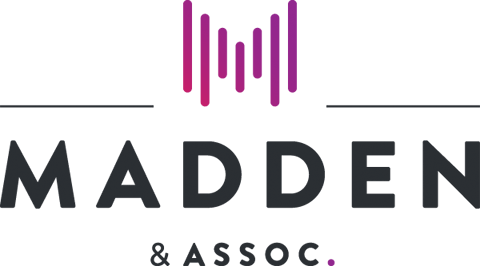Like the word unprecedented, pivot has become a bit cliché. But in these strange times of working through a global pandemic, I do believe my job title should definitely include the ‘p’ word.
Reacting to change – some of it historic and, yes, unprecedented is a daily occurrence. In the past three months, we have seen quantitative easing used for the first time in Australia, the RBA embarked on a yield curve control strategy with cash rates dropped to 0.25 per cent and a $259 billion economic support package was implemented from the government in response to the coronavirus. We have also witnessed Australian unemployment rate rise to 6.2 per cent, US oil prices dip below zero as producers actually had to pay to dispose of excess and CBD’s globally become ghost towns as working from home became our ‘new normal’.
Essentially the world as we know it, has been turned upside down.
Working as a financial and corporate PR, I have noted some interesting parallels between the advice of investment experts and the communications counsel Madden has been giving its clients. In my role, I am fortunate to be exposed to many impressive investment experts and their insights.
One such expert, Scott Haslem has said that: “History reveals that liquidating large parts of investment portfolios causes underperformance in the long-term and may well prevent an investor’s ability to capitalise on any rebound in those investments.”
I believe this statement to be relevant when considering how to navigate a communications program through volatile times. The communications industry has suffered during this period as many businesses have had to ‘liquidate’ resources and capital away from their communications programs. But is this wise? And are these businesses denying themselves an opportunity to capitalise on building their ‘reputation flywheel’ (as we like to call it at Madden)?
In both the investment universe and in communications, the main questions arising seem to be: should we stay the course and stick to our strategy, or should we pause, pivot or pull the plug all together?
From my experience the best results are achieved from ‘staying the course’ with a communications program in regards to the consistency of your outreach. However, pivoting your program and re-evaluating whether the upcoming activity you had planned is still going to be relevant in the current environment, is also fundamental to achieving success.
Therefore, here are my three pieces of advice on how to continue communicating through periods of volatility.
Consistency is key
We know that in volatile times, clients and investors react well to consistent and timely communications. In fact, it is critical in times of crisis for businesses, whether they be wealth managers, fund managers or insurance providers, to be consistently engaging with their clients. Communications and PR is an extension of this communication and is also a way to reach potential new clients, so pressing pause or turning off this source of engagement is not advisable. If you can provide valuable insights during these times, positive momentum for a business’s ‘reputation flywheel’ will follow.
In the current climate, media are actively looking for experts to provide commentary, insights and ‘unpack’ market movements, economic policies/ reform, current sentiment in the industry etc. Remain alert to this opportunity. This is the time to be highlighting the experts in your business. The two-pronged benefits to communicating consistently are firstly and most importantly, offering reassurance and advice to clients and potential clients. Secondly, there is an opportunity to build solid mutually beneficial relationships with media by proactively providing them with the expert opinion that they are actively seeking.
Flexibility isn’t just important, it’s a necessity
Unfortunately, we have had many great projects in the pipeline which have had to be put on hold for our clients. Although it can be difficult to put something aside when it’s taken a lot of resources, time and money; trust in your communications team. Stay ‘tone aware’ to the context of what is happening around you. If not, you risk detracting from any positive reputation you may have built previously.
It’s also critical to continue to have open and transparent conversations about what is and isn’t working from a communications perspective. It might have seemed like a great idea but if it’s not getting any traction, let’s accept it and move on. Media moves quickly and we need to too. Journalists are also under an enormous amount of pressure and are also trying to navigate this new world so working with them and practicing patience is important.
Be strategic and considered
We would always advise to not follow the ‘doom and gloom’ approach. It might get you a big splash but being strategic and considered in your communications approach is far more beneficial in the long run. Be the ‘safe pair of hands’ for clients and find a good mix of commenting on current events and market movements and also taking the time for more reflective or forward thinking pieces, offering perspectives on what the other side of the crisis could look like.
As a PR professional, much of the work we do is guided by tight deadlines, quick turnarounds and thinking on our feet but some of the most rewarding work is when the dust settles and you have a chance to reflect, update strategies and most importantly communicate. Taking the time to find out how our client’s clients are doing, how business priorities have adjusted in the new environment and also how our stakeholders are doing on a personal level have proved to be invaluable during this time.

